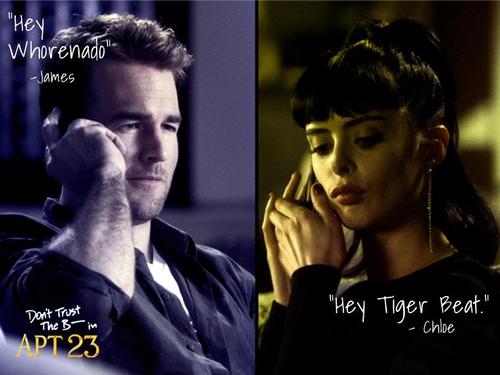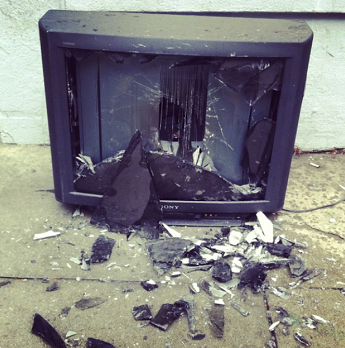I love making New Year's resolutions. My list is usually long and filled with poetic abstractions like "LOVE & LIGHT" (I totally stuck to that resolution last year, by the way) or things that are whimsically easy to honor like wearing red lipstick more. So, it's mid-December and time to start deciding what kind of mood I'm aiming for in 2014. While I'm going to stick with LOVE & LIGHT and red lipstick, of course, I'll be adding new intentions as well. I'm thinking about using Instagram less so I remember more. But the one resolution that keeps insisting itself took me slightly by surprise: I need to watch less television.
My grandmother used to say that if you're at a party where talk turns to TV, then the party is over. I appreciate the spirit of her advice, and I'm inclined to agree. And yet lately, everywhere I am, at dinner, at parties, at any gathering of more than one person, TV comes up, and it comes up at length. Almost 100% of the time. And it's starting to make me feel like the party is over.
Now, I'm definitely as guilty of this as the next person. I want to discuss Juliette Barnes, and the sociological factors that made Breaking Bad such a cultural phenomenon. I want to rhapsodize about how New Girl captures the humor of my generation, or how Scandal is, well, scandalous. I want to jokingly yell, "Spoiler alert," when Pretty Little Liars comes up (the prevalence of that phrase is interesting too) and I love the live-texting updates I'm getting from my friend who is speed watching Gossip Girl. When The Bachelor/ette is airing, you're lucky if you can get me to talk about anything other than my psychological theories about it. I crush anyone in Friends trivia, I get a lot of my news from The Daily Show and, as a writer, I think some of the narrative elements, characterization, and arcs that certain shows utilize are instructive and intriguing.

There's much to be said for TV these days. It definitely seems like it's the smartest it has ever been, with good writing and an interesting range of subject matter. The medium is certainly being explored and utilized well. And our desire to discuss our shows with each other is a way to bond over this shared experience we're collectively having as viewers, which is understandable. I recently tried to convince my friends to watch the flawed, dark, already-cancelled The B**** in Apartment 23 because I'm convinced of its subversive cleverness and James Van Der Beek playing himself is deliciously perfect (who knew he was so funny?). I wanted someone to discuss this with me! That sharing and discussion felt like part of the viewing process.



